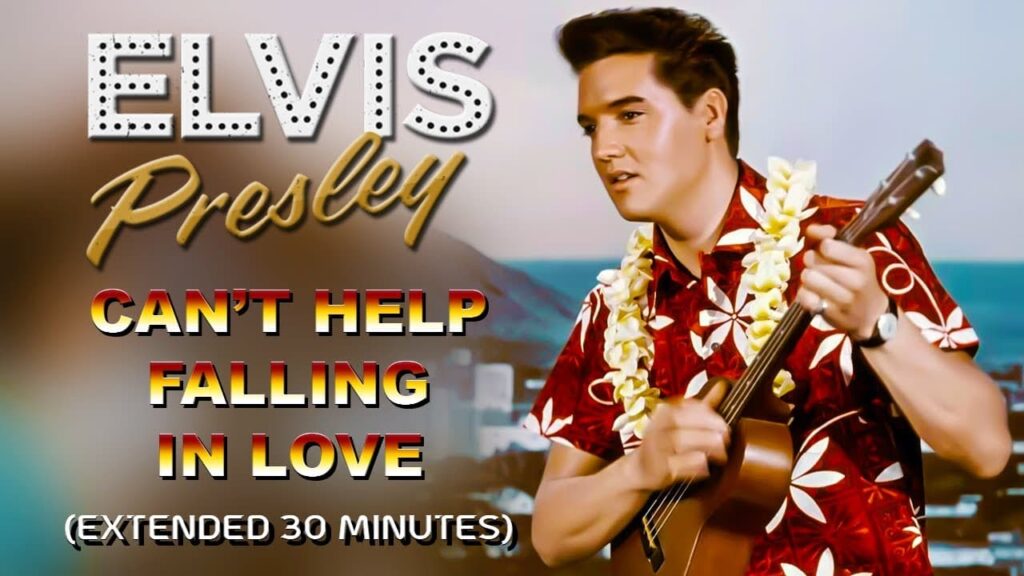
When A King Reclaims His Throne
There are moments in history that feel like the world holding its breath, and for music lovers, the “’68 Comeback Special” was one of them. After years of producing forgettable movie soundtracks, Elvis Presley was ready to re-establish his kingdom, and he did it with a raw, stripped-down television event that reminded everyone why he was called the King. His performance of “Can’t Help Falling in Love” from this special is not just a song; it’s a poignant testament to his enduring power and an emotional bridge between his past and future.
While the original studio version of “Can’t Help Falling in Love,” released in 1961 for the film “Blue Hawaii,” was a commercial success—peaking at number two on the US Billboard Hot 100 and reaching number one in the UK—the 1968 version is the one that truly resonates. This live rendition, performed in an intimate, “stand-up” segment of the special, wasn’t released as a single at the time. Its power was in its context, as a key moment in the television broadcast that revitalized Elvis’s career. The accompanying album, “Elvis,” also known as the “’68 Comeback Special” soundtrack, peaked at number eight on the Billboard 200, but the impact of this particular performance far surpassed any chart position. It became a signature closing number for all of Elvis’s live shows in the years to come, a tradition that continued right up to his final concert.
The story of this rendition is tied directly to the special itself, which was initially envisioned by Colonel Tom Parker as a Christmas television special. The show’s director, Steve Binder, had a different, more ambitious vision: to capture the real Elvis, the rebellious rocker who had been dormant for too long. He fought against Parker’s wishes and convinced Elvis to perform live in front of an audience in his iconic black leather suit, a look that hearkened back to his rebellious youth. It was in this raw, unscripted environment that Elvis delivered a performance of “Can’t Help Falling in Love” that was profoundly different from the earlier, more polished studio recording. He sang it with a newfound vulnerability and gravitas, a man who had been through the fire and emerged with a deeper understanding of love and its complexities.
The meaning of the song, already powerful, took on an entirely new dimension in this performance. It’s an honest and vulnerable declaration of love, a surrender to a feeling that is so overwhelming and inevitable that it feels like destiny. The lyrics, “Wise men say only fools rush in / But I can’t help falling in love with you,” resonated with Elvis’s own journey. He was a man who had often been told how to live, what to sing, and what to wear. But in this moment, in this song, he was simply himself, an artist at the mercy of his own powerful emotions. For older fans, this performance is a profound piece of their youth. It’s a nostalgic look back at a time when Elvis was at his most captivating, standing on that small stage, a lone figure in black, pouring his heart out to a generation that had been waiting for him. The way he sang it—with a slow, tender build and a final, soaring note—was not just a performance; it was a promise. A promise that no matter what, his connection to his audience, and to the music that defined him, was unbreakable. It’s a memory that feels as fresh and as emotional today as it did that magical night.